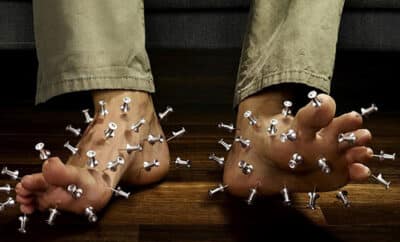Introducing LDN:

A Novel Treatment for Autoimmune Disease
By Dr. Melissa P. Broyles
Autoimmune disease is a condition in which your immune system mistakenly attacks healthy cells in your body. It affects 24 million people in the United States, which is 7% of the population. Common autoimmune diseases are: Celiac disease, Crohn’s disease, Multiple Sclerosis, Rheumatoid arthritis, Lupus and Hashimoto’s disease. Standard medical treatment includes NSAIDs (non-steroidal anti-inflammatory drugs) and immunosuppressants. While these treatments can be very effective, they are not without serious potential side effects, including stomach ulcers, kidney problems and infections. Recent research has discovered a novel medical treatment for autoimmune disease with a very safe side effect profile. Let me introduce you to LDN.
LDN stands for Low Dose Naltrexone. Naltrexone, at a standard dose of 50mg – 100mg, is a pharmaceutical medication used to treat opioid addiction. It works by blocking opioid receptors in the brain, thereby making the opioid (i.e. Percocet, heroin) ineffective. The opioid receptors are meant to respond to the body’s natural endorphins – our “feel good” hormones.
Low Dose Naltrexone at 1.5mg – 4.5mg (less than one-tenth of the traditional dose of Naltrexone) only partially and briefly blocks the opioid receptors. This sends signals to your brain that your levels are low. As a result, your body increases the production of endorphins.
Endorphins play a role in regulating the immune system and have anti-inflammatory properties. It has been reported that people with autoimmune disease have lower levels of endorphins compared to people without autoimmune disease. Therefore, by increasing overall levels of endorphins, autoimmune patients may benefit. When using 4.5mg of Naltrexone daily, studies have shown a decrease in symptoms in patients with fibromyalgia, Crohn’s disease and Multiple Sclerosis. However, LDN can be used for any autoimmune process.
LDN is usually dosed at bedtime because between 3-4 a.m. is when the body’s natural endorphins are at their highest level. The only potential side effect is insomnia, which should resolve in three nights. An alternative would be to dose LDN at noon if insomnia persists. The only contraindication to taking LDN is if a person has liver disease. It is a very well tolerated, prescription medication that is only available at a compounding pharmacy.
In summary, LDN increases one’s natural endorphins, has anti-inflammatory properties, modulates the immune system, and is very well tolerated. So, if you are suffering from an autoimmune disease, consider consulting with an integrative physician for LDN treatment.
There are a lot of choices for a person looking for an alternative to today’s traditional medical practice. Naturopathic, holistic, functional medicine to name a few. It is mind boggling trying to sort out the best options when seeking care. After years of traditional treatment for depression, and never really feeling good, I sought out Dr. Broyles for possible alternative therapies. Right from the start, I knew this was the right practice for me. Dr. Broyles takes time to listen to concerns, discusses possible causes and recommends alternative methods of treatment as well as traditional methods. In a few short weeks, I was feeling better than I ever had before. She truly treats the whole person- body, mind and spirit. Since that time, I have referred many people to Dr. Broyles, and they all are extremely happy with her practice. – Rebecca K.
* Profile photo by Roy McDowell





